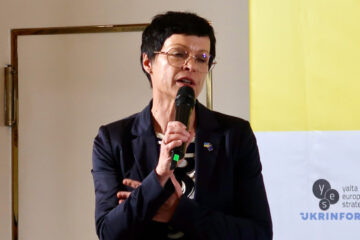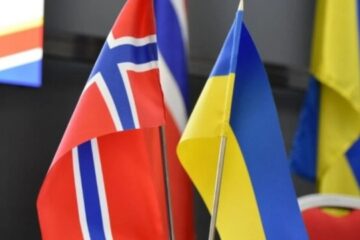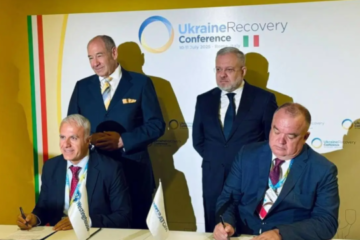Europe continues to stand with Ukraine and plans to further strengthen its support in the future. Numerous programs have already been launched to attract funding and investors. At the same time, people — Ukrainians — are just as critically important to the country’s reconstruction as financial resources.
Ukraine is the first country to negotiate EU accession while actively defending itself against an aggressor. Despite the enormous challenges, including the difficulty of implementing reforms under such conditions, Ukraine has every chance of gaining EU membership within five years. Meanwhile, Russian war criminals will face justice in a fair court.
EU Commissioner for Enlargement Marta Kos discussed these and other issues in an interview with an Ukrinform correspondent.
– Commissioner, in your speech at the European Parliament last month, you stressed that “the war has left Ukraine with a diminished workforce and a severely strained economy that will profoundly affect the country’s ability to rebuild.” You also said that “the Commission remains committed to engaging in reforms that will enable rebuilding the economy and infrastructure in Ukraine, once the war is over.” Here in Rome, you are discussing explicitly the human aspects of Ukraine’s reconstruction. How do you see the prospects of Ukrainians returning home?
– The war has many faces. Usually, when we talk about war, we focus on the military aspect or financial support. Very often, we forget the human side. And this will be especially important when there is peace in Ukraine. It’s not just about the people who are there now. It’s not only about the soldiers — it’s about the veterans, the people who have been left alone, and those who have lost relatives.
So I believe it’s vital to remember that whatever we do to help with the recovery, rebuilding, or modernization of Ukraine, we must not forget this human dimension.
Last month, the Commission set out a common European path for the future of Ukrainian refugees. This will help ensure some stability — especially once we have peace — and pave the way for people to return, for those who want to.
I think it’s difficult to generalize. Every story is different. Some people will want to stay, some will want to return to where they lived. But some will not be able to go back — because their homes are gone — and they will need to move internally.
So, when the time is right, Ukrainians should have the chance to choose what to do, and we should help — by rebuilding houses, infrastructure, and supporting veterans. We have a very good example of cooperation between Croatia and Ukraine.
We also need to take care of the health system. This is my constant plea: whatever we do or say about reconstruction, we must think of the human dimension.
Thank you for asking this question first. It’s so often forgotten, truly.
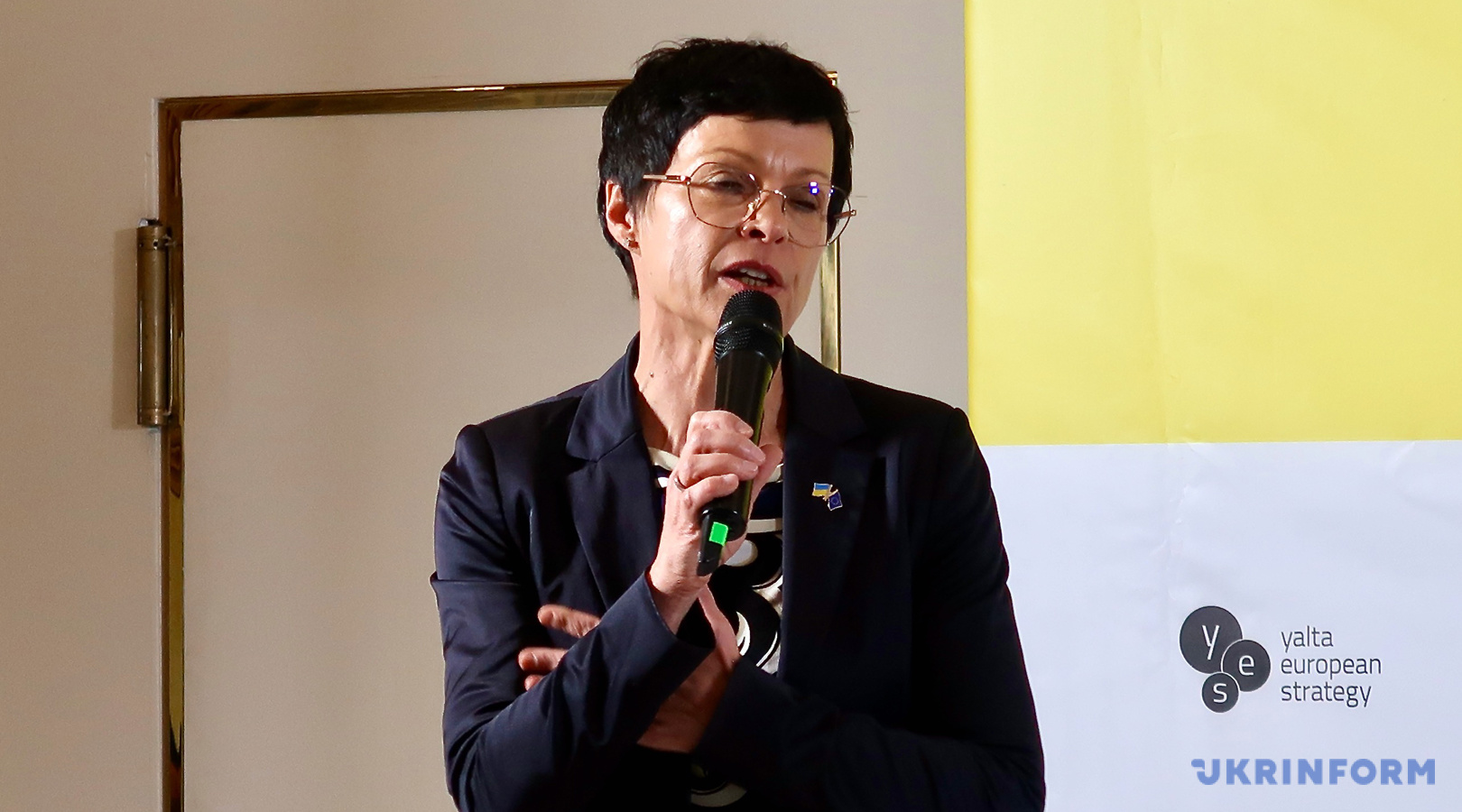
EU FINANCIAL SUPPORT FOR UKRAINE IS SECURED
– The EU is already the largest donor to Ukraine, with almost €160 billion committed. And the European Union has pledged to strongly engage in reconstruction. It was reported that the EU is now considering creating a €100 billion fund to support Ukraine in its 7-year budget. Where will this money come from?
– Regarding the financing: for this year, everything is 100% covered.
Then, for 2026 and 2027, we will have to assess how the war evolves and how we can help. And after that, we’ll enter a new financial period — a new European budget, which spans seven years. We’re still working on it.
So, from next Wednesday onward, I’ll be in a better position to speak about it.
But currently, we are considering the whole package for the enlargement countries.
And of course, Ukraine has a special place.
It is clear that there will be, I would say, a special allocation dedicated to Ukraine for the next financial period, from 2028 to 2035.
– It was reported that Brussels is urgently looking for ways to cover Ukraine’s budget deficit of about €19 billion for next year. So, next year is not yet covered?
– The new element here is that because the war is continuing, we have to reassess what Ukraine’s budgetary needs will be.
We have already planned everything, and the Ukraine Facility is one of the best instruments we have — €50 billion, including investments under the second pillar.
But if the war continues, we will need to reassess how much additional support we must provide. That’s the big question. We’re already discussing this with your government.
I wouldn’t necessarily call it a deficit — we need to assess your government’s needs, and then we will assist accordingly.
Because we are now giving a lot of money directly to the Ukrainian budget — so you can pay salaries.
– My salary as well …
– Yes, of course! It is very, very important. Your role as a journalist is crucial — you must be paid.
So yes, this money is going directly to the budget.
– Ukraine Investment Fund booked 10 new investment programs. What are they?
– With this, we are mobilizing more than €10 billion across different areas — the human dimension included.
The flagship initiative is the Equity Fund for Ukraine. This EU-backed private equity fund will channel large-scale investments into critical sectors for Ukraine’s reconstruction. Anchored by in EU and Member State commitments, it will support enterprise growth and financial stability while aligning Ukraine’s economy with EU norms.
Countries like Germany, France, Italy, and Poland are participating. They are contributing a certain amount initially, and then, as with any equity fund, it will crowd in private capital in critical sectors: infrastructure, health, energy, and more.
The next priority is support for renewable energy — especially solar and wind. A Renewable Energy Guarantee of Origin scheme, a pioneering guarantee complemented by donor funding, will unlock up to 1.5 GW of renewable energy capacity in Ukraine. This EU-supported mechanism will stabilise energy markets and fast-track green energy investments using proven, bankable models.
This is the full list (Ms. Kos shows the long list). I had a whole hour of signing procedures for the Flagship Equity Fund for Ukraine and many other projects.
Through the Ukraine Facility, large-scale investments will be channeled into critical sectors of Ukraine’s reconstruction. For instance, €134 million in solidarity lines, a finance contract with the Government of Ukraine, and compensation for destroyed residential properties — that’s part of the Home Project with the World Bank.
Then there’s a project with the French Development Agency for municipal infrastructure. There’s also cooperation with the European Investment Bank… and so on.
All in all, EU-supported investments and de-risking instruments will guide public and private actors through a robust pipeline of reconstruction-ready projects, for a total of new EUR 10.5 billion in mobilised investments.
This is all very important.
BY ARMING UKRAINE, EUROPE STRENGTHENS ITSELF
– The defence industry is strongly present at all the URCs. Actually, the defence industries of the EU and Ukraine are already well-integrated. Could you speak briefly on this topic?
– I believe that this year, defence will be even more prominent because of the new programme — the SAFE instrument — adopted by the European Commission.
The EU is proactively working to support Ukraine’s defence industry and military production to meet Ukraine’s military needs — including through instruments like SAFE.
This marks a significant change — because when we talk about Ukraine’s defence and security, we’re also talking about Europe’s defence and security.
This is the first conference where it’s so obvious that helping Ukraine means helping ourselves.
We are now building a deep and lasting partnership to strengthen Ukraine’s defence sector — its technological and industrial base.
The biggest change will come from the SAFE programme, with €150 billion that will allow EU member states and companies to invest in Ukraine — for both Ukraine’s needs and their own.
So, we’re not just arming Ukraine — we’re strengthening ourselves.
And we’re now in a deep phase of very concrete planning. I can’t speak in detail yet — about how this will be implemented or which member states will participate — some will, some won’t.
But I’m glad that the EU has become the leading actor in supporting direct procurement from Ukraine’s defence industry. These investments will create jobs in Ukraine, generate revenue, and increase tax income. So it’s a win-win situation for everyone.
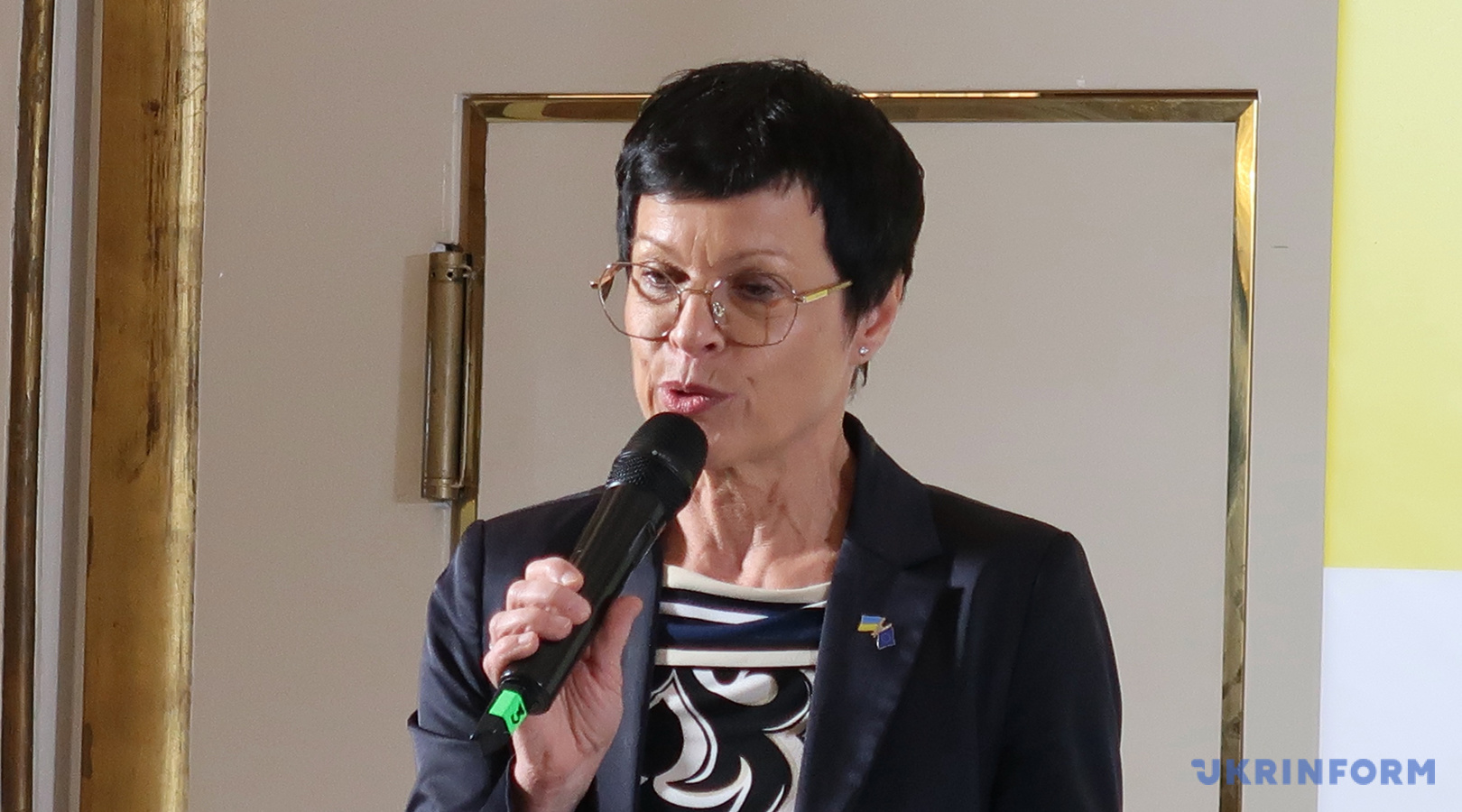
A MARSHALL PLAN FOR UKRAINE IS ALREADY UNDERWAY
– We’ve been speaking about a “New Marshall Plan” for Ukraine for at least three years (starting with the 1st URC in Lugano). But the “plan” doesn’t yet have a concrete framework. Are we all just waiting for the war to end?
– I think it’s already happening. You may call it the Marshall Plan.
What I expect for Ukraine is a kind of new economic miracle — like Germany’s Wirtschaftswunder.
There is one big difference, though. The original Marshall Plan was help from one country to many. What we’re doing now is many countries helping one. And the EU is playing a leading role.
Of course, Ukraine will determine its strategic direction and aspirations.
Over the past three years, although we haven’t formally called it the Marshall Plan, significant developments have occurred to prepare Ukraine.
A major part of this is the EU accession process.
And I stress all the time that the reforms Ukraine is undertaking are crucial to attract investment.
For example, Cluster One — which we’ll open soon — covers anti-corruption, the rule of law, public procurement rules, and the judiciary.
These are the foundations that will give investors confidence.
Investors won’t come unless their investments are protected.
So that’s one aspect of the Marshall Plan — the accession process.
The second is the major financial package I mentioned earlier — the €50 billion Ukraine Facility.
That is already a kind of Marshall Plan, underpinned by a four-year plan developed and approved by the Ukrainian government.
It includes a reform agenda.
So Ukraine must carry out reforms, and this whole process is transformative.
What I like most is that we’re not just giving money — we’re giving money for necessary reforms, like administrative reform. We’re now waiting for reforms to happen — for example, in ARMA and other areas.
WE HOPE TO OPEN ALL NEGOTIATION CLUSTERS BY YEAR-END
– What if a peace agreement is never signed (and today it is not in sight at all) and the ceasefire remains fragile? What would that mean — the absence of a real peace agreement — for Ukraine’s EU membership prospects?
– It’s already remarkable. This is the first time in history that we are negotiating with a country at war. It has never happened before.
For the first time, we are also actively engaged — and you especially, in Ukraine — in fighting a hybrid war, a propaganda war waged by Russia. This is also a new dimension in the accession process, not only for Ukraine but also for Moldova. We have to fight the Russian propaganda that aims to destroy your EU aspirations.
You know, in a sense, this conflict with Russia didn’t start in 2022 — it started in 2014, when Ukraine decided to go its own way.
We have come through wartime circumstances, and if the war continues — which I truly hope it doesn’t — it will still not block the accession process.
You are delivering. So we will be able to open all the clusters. I hope this will happen this year. We will be ready.
We are currently preparing to open Cluster One, followed by Clusters Two and Six. The screening reports are already completed. By September or October, we will have the screenings for all policy areas. We are really doing everything possible to make this happen as soon as possible, because Ukraine has done its homework. It’s a merit-based process.
Given that Ukraine’s candidate status was approved by all 27 EU members — including Hungary — the question is how we deal with it now.
– Hungary’s veto, you mean…
– We call it unanimity decision-making, but yes, it can function as a temporary block until we find a solution. However, personally, I am convinced that we will find a way — it cannot be that we fail to open the negotiations.
– There is a possibility that populist governments may come to power in some EU countries. Is there a mechanism to overcome such vetoes?
– According to the European treaties, we need only two unanimous decisions: one to open negotiations, and one to close them.
For everything in between, the decisions are also subject to unanimity, based on the negotiation framework.
So we are now working on how to manage this process in between those two unanimous decisions required by the treaty. And we hope we will find a solution.
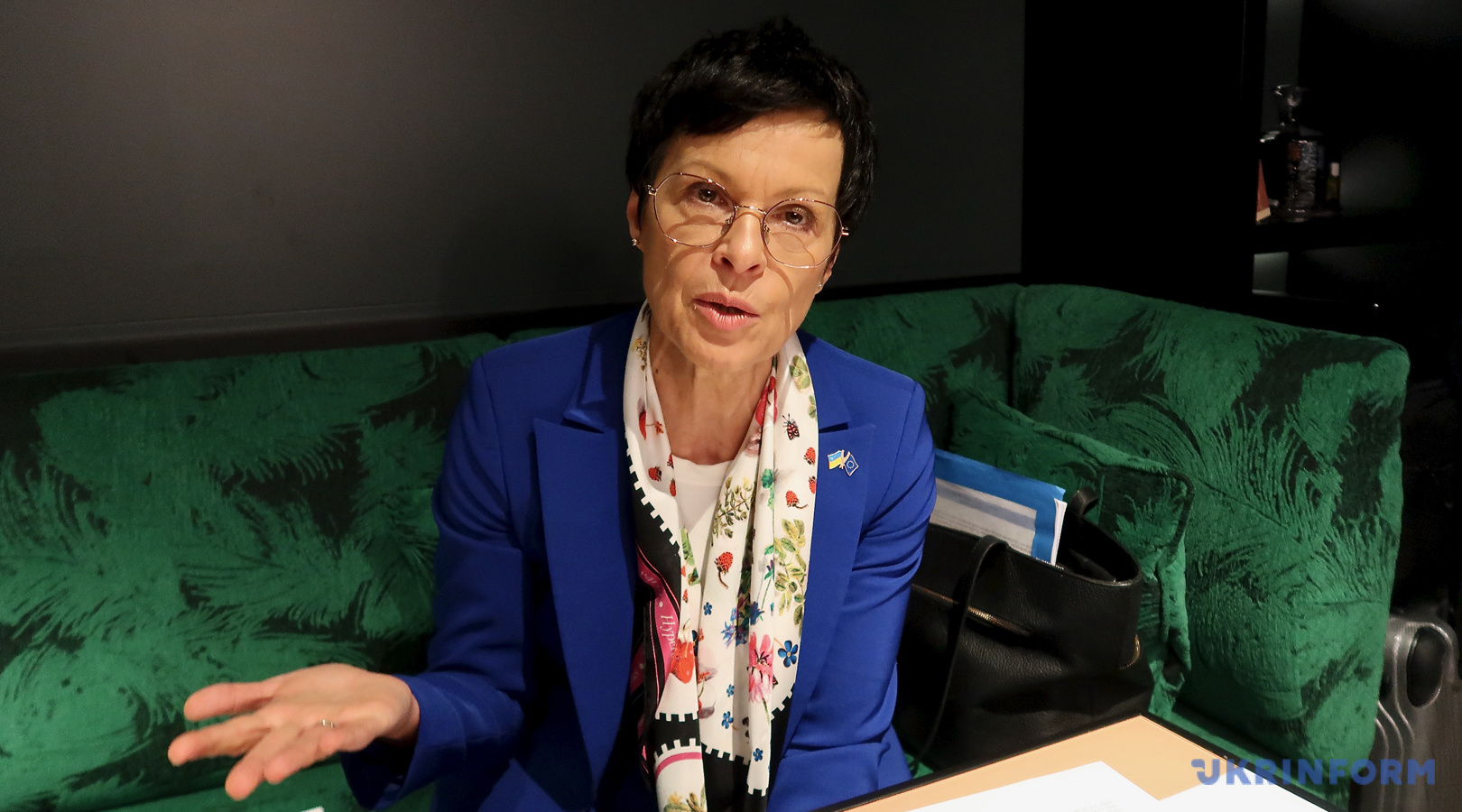
NEW CORRUPTION CASES SHOW THE SYSTEM IS WORKING
– Ukraine has recently been hit by new corruption scandals. Do you see this as a positive sign — that we are exposing and fighting corruption — or is it a negative sign that some current officials are not entirely honest?
– You know, any case of corruption is one too many.
On the other hand, the fact that we know about these cases — and that many are being exposed thanks to your journalistic work — shows that the system is working, that these issues are being brought to light.
At the same time, we are helping Ukraine build institutions that can effectively fight corruption, and that is the most important part — especially in Cluster One.
That’s why I always emphasize: once we open Cluster One, everything needed in the field of anti-corruption will be essential. And not just for investors.
The people of Ukraine deserve — your businesses, your companies deserve — a system that is trustworthy, where no money is lost to corruption.
We also have a robust control mechanism in place. There is a special audit board. This is very important to us, given that billions and billions of euros are going into your country.
But I want to stress something else: this isn’t just about Ukraine. Fighting corruption is a basic requirement for all candidate countries.
– Speaking of justice: the Commission stands firm in its condemnation of the numerous, well-documented violations of international humanitarian law by Russia, and it is eager to support efforts by Ukraine and the international community to ensure accountability. President Zelensky and the Council of Europe, on June 25 in Strasbourg, signed an agreement to establish the Special Tribunal for the Crime of Aggression. But Putin cannot be brought to court while in power — and neither can other Russian war criminals, as long as they remain in their country. Are these commitments more than just good intentions? Do you personally believe that war criminals will be brought to justice?
– I understand your question, and I want to remind you: there are good precedents — including from the wars in the former Yugoslavia — where, at the beginning, no one believed justice was possible. But then it was.
So, the agreement on establishing the Special Tribunal for the Crime of Aggression against Ukraine marks a very, very important step.
And I do believe in justice. I believe that all — or at least many — of the people truly responsible for the crimes, and for violating the UN Charter, will be brought to justice.
– And just to wrap it up: do you believe Ukraine will be a member of the European Union by 2030?
– Yes! Of course!
And it would be wonderful if it happens one year earlier — before my mandate expires in 2029.
Olga Tanasiychuk, Rome
Photos provided by the author


